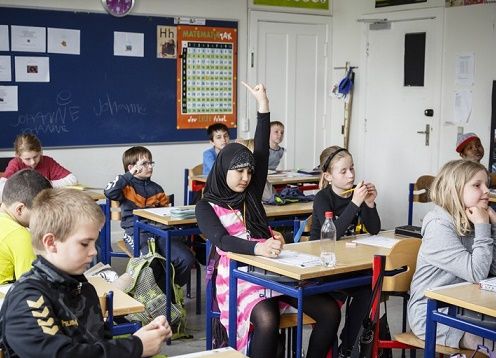While many children and teachers can’t wait to get back to school, they will find that some of last year’s corona restrictions are being retained as improved ways of teaching and working.
Parental involvement
Many schools will retain corona techniques such as teaching in smaller groups, maintaining stricter hygiene, and using better communication with parents to keep kids learning at home.
During virtual teaching, parents were roped in to understand their children’s weekly schedule – a habit that many schools will retain.
Keeping classes separated during break-times for health reasons has led to reduced playtime conflicts, and this in turn has led to an improved teaching environment.
Closure rules relaxed
Rules for COVID-19 positive cases at schools are being relaxed too to try to keep schools open as much as possible. Classes will no longer be automatically sent home after one positive test.
Close contact with a positive case is redefined as being less than one metre from a contact for more than 15 minutes.
Sending children home will only be considered for major outbreaks with more than 30-40 infected.
Falling Behind
But educators are aware that many students did not get much out of the last years worth of mostly online teaching, and they worry that many may have dropped behind and will need a lot of help getting back into the daily rhythm of learning.
The Education Ministry has set side 295 million kroner to help schools and teachers get back to normal.
Teachers will have more freedom to adapt to individual students needs, both academically and for the children’s well-being. Teachers will be required to spend less time on paperwork, and in some cases two support teachers will be available rather than one.
“Maybe we will find out that there are five students who really need an increased effort in reading. Then you can sit down with the five students and make an effort that is targeted at what they need”, the headteacher of Baggesenskolen in Korsør, Helle Haim, told DR.
Other schools are choosing to provide special courses for students who have gaps in skills and knowledge since so much of the last year was missed.
Who knows best?
The extra measures have the support of the Danish Teachers’ Association, according to its chair Gordon Ørskov Madsen.
“I think it is excellent. Then you can organise the teaching more flexibly and more purposefully the needs that are in the class,” he told DR
Andreas Rasch-Christensen, a member of the Council for Children’s Learning, agreed, added that “the best decisions are made by the teachers, educators and school leaders who are close to the children and who know their everyday life. Schools during the closures have shown they are ready for change and ready to solve that task, if only they get enough flexibility in the work.”














